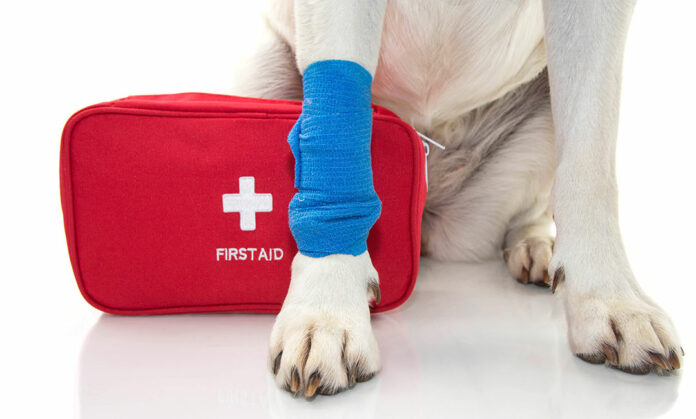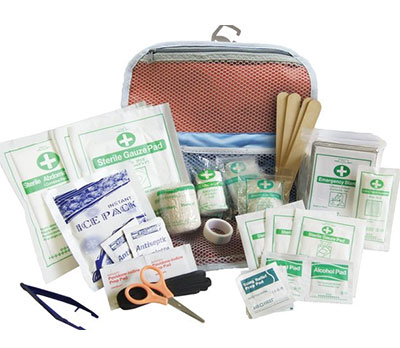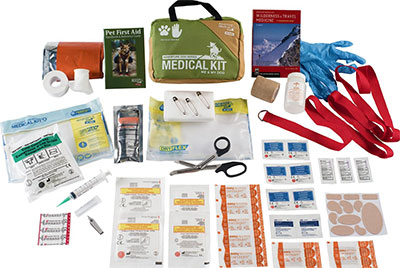Disclosure: The pet first aid items below contains affiliate links, which means we may receive a commission if you click on a link. But don’t fret, our pups would never forgive us if we were to feature products we didn’t genuinely love. Click the titles to shop!
April is National Pet First Aid Awareness Month–a month we dedicate to teaching fellow pet parents about providing emergency care to their animals when necessary. As with humans, first aid knowledge can help save your pets life, reduce the potential for increased injury and promote fast recovery. From knowing how to recognize internal blockages to bandaging your pup’s paw, knowing the proper steps to take in an emergency can be incredibly beneficial, and sometimes lifesaving. We understand that pet first aid is not a replacement for veterinary care, but it can help owners handle emergency situations by recognizing problems early and to act on them quickly. So, to help give you some insight, here are 5 things to know about pet first aid.
1. Know the signs of a medical emergency
As a pet owner, it’s important to be able to recognize the signs of a medical emergency in your pet, such as difficulty breathing, seizures, collapse, or severe bleeding. Familiarizing yourself with what to look for can help you react quickly and get your pet the help they need. Some basic signs and symptoms that you may want to look out for include:
- Bloated, swollen, or painful abdomen
- Difficulty breathing, extreme coughing or choking
- Obvious pain
- Uncontrolled bleeding
- Loss of balance
- Loss of appetite
Since there are lots of reasons your pet may be experiencing the aforementioned symptoms. If you’re unsure, it’s best to contact your emergency veterinary clinic ASAP. For additional details on what to look out for, click here.
2. Create a pet first aid kit
Having a well-stocked pet first aid kit can help you quickly treat minor injuries or manage an emergency situation until you can get your pet to a veterinarian. Some items to include in your kit might include gauze, adhesive tape, scissors, antiseptic wipes, and a digital thermometer. Don’t feel like making your own? No worries, here are a few options to buy a completed kit:
Chewy, Kurgo First Aid Kit for Dogs & Cats, $32.99 $22.45
Chewy, Adventure Medical Kit Dog Series, $56.99 $51.29
3. Take a pet first aid course
Consider taking a pet first aid course to learn more about how to recognize and respond to common pet injuries and emergencies. Many organizations offer online courses, and some local pet stores and shelters may offer in-person classes.
4. Know how to perform CPR
In the event of a pet emergency, knowing how to perform CPR (cardiopulmonary resuscitation) can be lifesaving. Be sure to familiarize yourself with the proper technique for performing CPR on a pet, and practice regularly to keep your skills sharp. Check out this detailed how-to from the American Red Cross on how to perform pet CPR.
5. Have emergency contact information readily available
Keep important phone numbers, such as your veterinarian’s office and the nearest emergency veterinary hospital, readily available. This will help you quickly access the help you need in the event of an emergency.
Need some tips and tricks on how to start obedience training? Here’s our guide on how to give it a go!
The post 5 Things to Know About Pet First Aid appeared first on Nurtured Paws.











